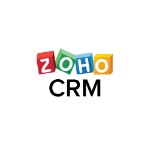Many multinational firms have more than one of each team, working from scattered geographical locations. A CRM solution can streamline workflow and boost team communication. It ensures the standardization of processes and enhances the free flow of information between offices in different countries. Any business that employs customer service or sales representatives can benefit from CRM integration. Ecommerce CRM integrations increase employee productivity because by accessing customer details, including orders, payments, and even products viewed, the sales team can upsell or cross-sell far more effectively. This even applies to B2B eCommerce sites, whose sales teams are empowered to negotiate payment terms based on a clients’ past payment history. Using a spreadsheet to manage your company means inputting or importing data manually, figuring out what’s important, and then creating a graphical way to present this data. CRM does most of this for you. When you use multiple programs and contact databases, your data becomes vulnerable. With a centralized CRM system, you consolidate your commercial and confidential information — the fewer platforms that have your data, the less risk. After signing up for a specific CRM system, you can import leads from multiple sources and set restrictions on who from your team can access specific data. CRM has rapidly expanded from its infancy as a sales force automation (SFA) tool to an enterprise platform which is in some cases the hub from which organizations run their businesses. The eCommerce industry is hyper-competitive, with customers having more choices than ever before. And to stand out, you need to understand your customers and prospects—who they are and what they look for in your website. A CRM software for eCommerce helps you understand customer behavior, prioritize the best sales leads, boost engagement, and drive conversions using AI-powered contact and deal insights. 
CRM and its kindred customer-focused efforts are more than just an outgrowth of direct marketing and the advent of new technology. This approach requires new skills, systems, processes, and employee mind-sets. As the Interactive Age progresses, mass marketing must give way to new principles for targeting, attracting, winning, serving, and satisfying markets. A CRM system helps you go deeper with all your data and metrics, including those from other sources. When your company is dedicated to maintaining clean data, or data free from errors, you can use your CRM platform to collate, tabulate, and organise that data, which is then easy to interpret with reporting features. This is one of the biggest benefits of a CRM system, and it trickles down to other benefits that become available once you have this usable data. Reducing costs is another purpose of customer relationship management. Customers often will complain about something or show dissatisfaction for some product or service. This is normal in business but, if there is a growing trend against a product or service, a CRM system will help the business recognize this quickly. By cutting off these costs, the company can keep from spending money in the wrong places and funnel that money into more effective areas. Implementing CRM technology can help businesses monitor the entire sales lifecycle, right from the prospect stage to the final conversion. It can manage forecasts and quotas that lead to better decision making and give profound business insights. In an ideal world, a CRM system would be reviewed extensively by users and the results placed on a CRM Software Reviews site for all too see.
The Need For Insight From A CRM
Companies that are truly devoted to the needs of their customers develop organization structures, processes, and goals that support customer relationship management activities. One of the best ways that companies can take full advantage of CRM is to hold their various departments accountable for metrics that have the most significant impact on customer retention and sales. The function of Collaborative CRM is to centralize and organize all the information and data provided by the customer through different channels. The objective of collecting this information is to improve customer service quality. When all customer needs are addressed and anticipated, we can build up customer loyalty and possibly gain new clients. One of the key thumb rules for marketing to succeed is “launch the right product at the right time.” With a CRM system, you can understand and analyze the customer needs and behavior to launch your product at the correct time. CRM also helps you to identify profitable customer groups, with access to such data you can choose your target groups at the right time. In this way, you’ll be able to optimize your marketing resources efficiently and ensure that you don’t waste time on less profitable groups. Many larger CRM vendors have an annual conference. Making the investment to send someone from your organization to these events could inform you of new application features that are important to your organization. These conferences typically include a functional track that could be beneficial for your SMEs, project sponsor, or departmental champions. As members of the steering committee, understanding what is available in upcoming releases will help you prioritize development efforts and assist in managing releases. With new tools emerging constantly and competitors continuing to build up their CRM arsenals, it can be tempting to enlist similar but inappropriate tools to rapidly penetrate the CRM landscape and keep pace. But in doing so, companies risk investing in CRM in a manner that does not help meet their business objectives, and might even impede them. Relationship marketing can be assisted by purchasing the right system which means making sure the right Best CRM Software are in place.
CRMs are used to provide customer service professionals with instant access to every interaction a customer has had with a brand. Agents can see a customer's chat history, purchase history and customer service tickets. Access to this information allows customer service personnel to provide well-informed, immediate responses that should leave customers feeling satisfied. CRM is a strategy of increased focus on developing, maintaining, and extracting maximum value from customer relationships. Your CRM program includes people, business process, and technology components. Data security is a primary concern for companies using cloud-based systems, as the company doesn't physically control the storage and maintenance of its data. If the cloud provider goes out of business or is acquired by another company, an enterprise's data can be compromised or lost. Compatibility issues can also arise when data is initially migrated from a company's internal system to the cloud. CRM consists of strategies, processes, and software that manage your company’s interactions with customers and potential clients. This helps you sell more and build customer loyalty with a longlasting lifecycle. CRM systems are generally designed to streamline and improve customer interaction, the sales process, and the running of marketing campaigns. They do this by improving efficiencies across workflow and the sales pipeline—automating tasks, and analyzing data. In choosing CRM solutions, checking out a site which offers CRM Reviews is now a pre-requisite.
Future Profit Potential
Marketers can utilize CRM software to include social media information, such as the person’s likes and dislikes, comments and personal interests (interests in a particular service, product, etc.). A powerful CRM system can also be used as a sales and marketing tool, as well as for customer service and product shipping management. Automated marketing with CRM will ensure that you never let a lead slip through the cracks only to be picked up by your competition. Instead, you’ll use lead nurturing in order to automatically “drip” content to leads over time, keeping your business at the top of their minds. Your marketing team is able to set up these campaigns in the background, allowing leads to be nurtured to the point that they are ready to make a purchase with very little effort from the sales teams. Many CRM platforms offer data analytics tools that enable businesses to unlock insights that are invisible to the naked eye. You can measure just about anything from customer sentiment and whether you’re meeting their expectations, to your sales team’s performance or how well that last marketing campaign did. A CRM system is not only used to deal with the existing customers but is also useful in acquiring new customers. The process first starts with identifying a customer and maintaining all the corresponding details into the CRM system which is also called an ‘Opportunity of Business’. The Sales and Field representatives then try getting business out of these customers by sophistically following up with them and converting them into a winning deal. All this is very easily and efficiently done by an integrated CRM system. Since a CRM system centralizes all customer-facing information, silos and finger-pointing are significantly reduced. Sales can’t blame Marketing for not communicating with them. Marketing can’t blame Sales for not implementing their campaigns, and Customer Service can’t blame Sales for disgruntled customers. Everyone has the same access to the same customer information. The identification of appropriate metrics for evaluations of CRM Software Review is an important step for the industry to take.
The value a customer receives is the total package of benefits he or she derives from the core product or service. The aim of CRM to create a value proposition which is superior to and more profitable than those of competitors and which delivers a seamless customer experience. The pipeline management feature of CRM system gives you a visual representation of your current leads and deals. The deals are segregated according to the stage of the sales pipeline. This makes it easy for salespeople to understand the status of each lead and helps them decide which leads to pursue. The traditional CRM “suite” includes features to support three front-office business functions: marketing, sales, and customer service. Sales functionality typically includes lead and sales opportunity management and quote development. Marketing functionality allows for segregating leads and customers and coordinating communication with those leads across a variety of mediums (e-mail, telephone, and direct mail). Customer service is typically comprised of issue management and a knowledge base. The promised value of the full CRM suite, aside from the value derived within each department from the application’s features, is the information sharing that it can foster across departments. Such sharing is necessary if the organization is going to present a single face to the customer. The key material elements of a CRM system are: the data repository, consisting of databases and a data warehouse, which provides a powerful corporate memory of customers that is capable of analysis; IT systems comprising the organization's computer hardware and related software and middleware; analytical tools to undertake tasks such as data mining; and front office and back office applications which support the many activities involved in interfacing directly with customers and managing internal administration and supplier relationships. Today’s businesses revolve around collaboration. Collaborating on sales, support, and marketing all lead to a better customer experience, and it’s all about the customer experience. With a CRM, collaborating is simple. You can bring other users into the conversation, or if another user sees something in their feed, they can hop right in and offer their perspective. The confusion surrounding CRM System Review may be explained by the lack of a widely accepted and clear definition of how the results are achieved.
Gain Visibility Into Your Sales Pipeline To Boost Productivity
CRM applications can enable call-center agents to automatically identify phone calls from past customers, instantly recalling data from the CRM system. This offers the opportunity to cross-sell and suggest alternative products. Insights gleaned through CRM also equip companies to optimize their business processes, better manage expenses and increase revenues. Product inventories can be more accurately calibrated to reflect demand. A nuanced understanding of purchasing habits makes it possible to intelligently highlight premium and complementary products, maximizing upselling and cross-selling. More and more organizations are making financial expenditures to implement CRM. CRM initiatives are rapidly increasing as many firms seek to capitalize on all of CRM’s promises. Many will embark on the CRM quest, but few will succeed. Will your firm be one of those elusive success stories? The relationship with the customer is one of the most critical aspects of business. Today more than ever before, the system of relationships in which brands operate, whether B2B or B2C, has become even more relevant with the spread of digital technologies. We generally think of CRM as a technology, but it’s also worth thinking about it as a philosophy or strategy. The point of CRM is that it allows us to leverage customer data to serve the customer’s needs more effectively. The insights contained within this data potentially give us valuable insights into what consumers want from our businesses. To increase customer satisfaction and reduce customer attrition, choose a system where the Salesforce Alternatives are incredibly high.
A CRM helps you organize business critical information, improve productivity and is the glue that holds sales, marketing and customer service teams together, which, in turn, paves the way for further business growth. Whether you’re a small, medium or large-sized company, a CRM is the one application that is crucial to your company’s success. A useful and widely used feature of a CRM system is workflow automation. This feature will make sure that you never forget to respond or follow up on an enquiry ever again. The system may be automated in such way that tasks are assigned to a relevant staff member automatically. CRM has impacted e-commerce sites by becoming an essential part of a business’s success. One study found that interactively collecting and condensing customer data helps to build a company’s e-CRM capability, which ultimately leads to their corporate success. It is safe to say that going forward, CRM platforms created specifically for e-commerce (as well as implementing a scalable e-commerce solution) may very well be a necessity for web-based businesses. Stumble upon additional insights relating to Customer Relationship Management Services at this Encyclopedia Britannica link.
Related Articles:
CRM Software Systems: Making The Equitable Choice
The Leading 9 Benefits Of Customer Relationship Management Platforms
The Practicality Of CRM Services


